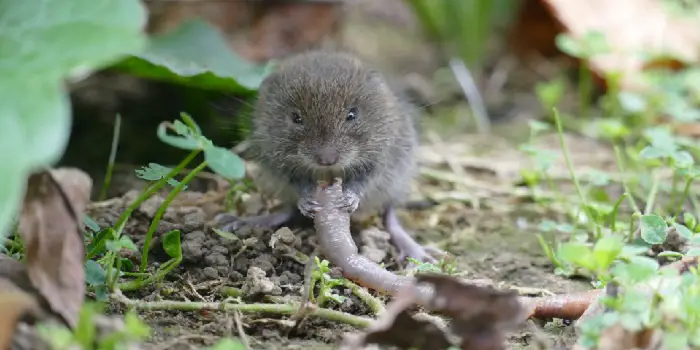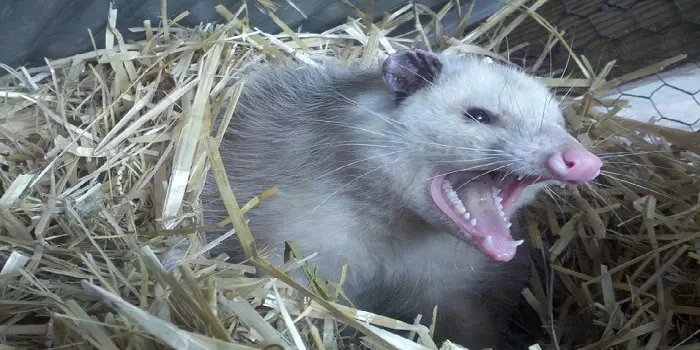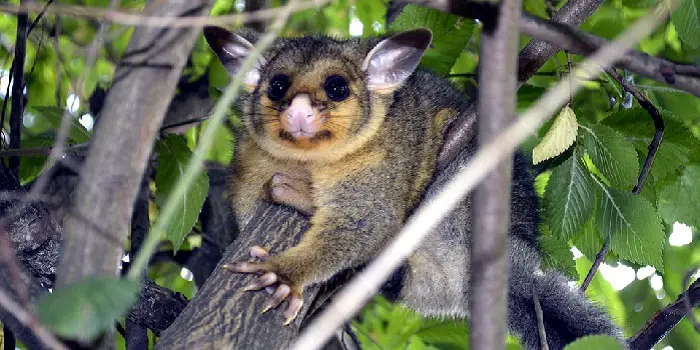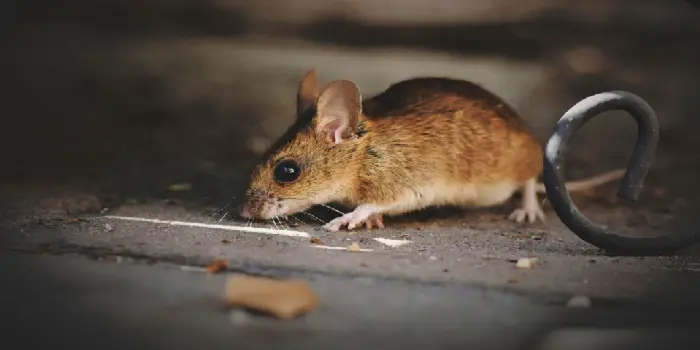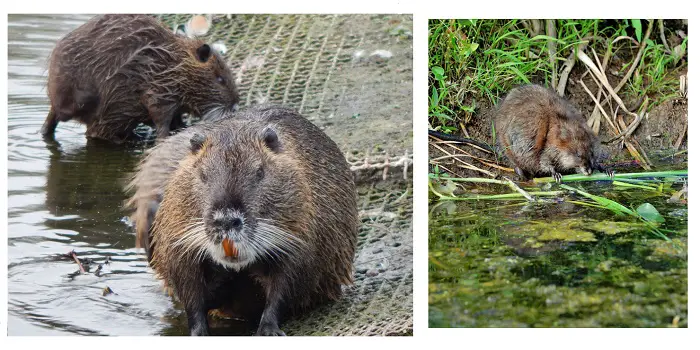
If you own a pond or live near water bodies like lakes, ponds, marshes, etc, you would have come to know about muskrats a lot.
Being predominantly seen in North America and in other parts of Europe, Asia, and South America, these Muskrats (also known as Ondratra Zibethicus) are aquatic rodents.
If you mistake them for a rat, then you are wrong.
Rats like to live in the lands, while the muskrats prefer water bodies for their dwelling.
Their tails are longer and thicker than the rats and can weigh around 2 to 5 pounds with a lifespan of about 1 to 3 years.
Now, our main topic is “are muskrats bad for a pond?”
The answer is more of a “Yes” with a little “No.”
Muskrats are only helpful if their population is limited in numbers. Otherwise, it’s a complete nuisance for your pond.
Are Muskrats Dangerous?
Muskrats are not dangerous unless you confront them intentionally.
If threatened, they may bite or scratch you.
In general, they don’t like the presence of humans, so naturally, they flee away quickly.
We adults don’t spend much time in ponds or lakes unless necessary for activities like fishing.
But children, given their own inquisitive nature for their age, may get hurt or bitten by muskrats when they try to chase or touch them playfully.
Chances are there that muskrats can spread rabies to kids, if left untreated.
Diseases like tularemia and leptospirosis can also be caused by muskrats which contaminate the water for human consumption.
Muskrats also pose an indirect threat as these are the foods for many wild predators like bobcats, snakes, coyotes, etc.
When these bigger predators come to hunt them, chances are high that they may come inside your property too at times.
Are Muskrats Good or Bad for Your Pond?
They don’t pose a greater health or life risk for humans, but they are dangerous to the structure of lakes or ponds.
If it’s a large natural pond or lake, then their existence will not be of much botheration as their presence keeps a check on the aquatic ecosystem and food chain.
Muskrats will merrily go around and eat aquatic flora like water lilies, cattails, etc.
By eating them, they control the exponential growth of plants and algae.
It also helps in the smoother flow of water, removing the blockages underwater, thus assisting in a smooth swimming experience for other aquatic animals.
On the downside, while burrowing their shelter underwater along with the corners or edges of the pond or lake, there are chances for damage and flooding of nearby areas.
This is what they do every day in their life.
In the case of decorative ornamental lakes or ponds, their presence can be a nuisance as they are prone to damage the structure while building their den for living along the lines.
This will make the water seep into nearby areas.
Muskrats will also munch on those beautiful flowers and ponds thereby wasting the main purpose of your decorative ponds.
How to Get Rid of Muskrats and Keep Them Away?
If you are afraid of muskrats in your pond, the best thing is to get rid of them in a humane way.
Here are a few different ways you can try it out…
1- Floating nets
If you have a small pond, this can be an efficient method to deter muskrats away.
All you have to do is spread the net all over the surface of the pond.
Make sure all the corners of the net are sealed or tied to something so that it won’t give any space on the top of the pond for the muskrats to dive in.
If you want, you can choose a matching color of a net that compliments your ornamental pond.
Mostly the muskrats will give up unless they are very determined to enter the pond by chewing the nets to find an opening to enter the pond.
2- Liner to cover banks
Another way is to cover the shorelines of the pond with a liner that’s made up of either plastic or mesh.
Before doing it, make sure there are no existing burrows. In case there are any, fill them with gravel or stones.
Also, confirm there are no muskrats inside the pond. Otherwise, it will not serve the purpose of liner installation.
After this, place the liner covering along the banks of the pond.
This will deter the muskrats from creating borrows for their hideout. And eventually, they will move out to a different locality.
3- Perimeter fencing
As per the size and design of your ornamental pond, you can also consider installing a fence that is a few steps away.
Make sure you dig at least six inches deep to place the perimeter fence, leaving no scope for the muskrats to dig below.
This fence need not be very tall as the muskrats are neither good climbers nor jumpers.
Please keep in mind to allow only a little space in the fence so that it would not be easy for the muskrats to squeeze in.
This will serve as an additional deterrent to toads, frogs, etc. So, it is of multiple uses for you and your pond.
4- Trap them in a human way
Once you identify where the muskrats have built their dens underwater, you can capture them using their favorite foods as bait.
As soon as they enter the cage trap, they will get caught in the trap while trying to eat their food.
Since they are nocturnal creatures, always check those traps in the morning.
Try to release the animal from the trap at a different location to prevent them from more pain or death.
If there are a number of muskrats present, you can trap them in groups using a large-sized trap and release them again in a more natural habitat like bigger lakes or ponds.
5- Attract natural predators
Muskrats are also part of the animal food chain.
So, many natural predators (like bobcats, snakes, and aerial predators like eagles, owls, and hawks) would like to feast on muskrats to satisfy their hunger.
Sometimes you may also have the owls, cats, or snakes as pets, which, when released outside, can hunt these down due to their inherent killing nature.
Muskrats, in general, will be cautious and won’t take the risk of entering their predator’s domain on getting the scent of them.
Also, they will be scared to live in areas where the movement of predators is high.
6- Spray natural repellents
With plenty of natural repellent sprays for muskrats available in the market, you can buy one and spray it on the plants to avoid muskrats in your garden.
Common ingredients of the repellents include cayenne pepper, garlic pepper, water, and coyote/fox urine.
This smell on the plants will make muskrats go awry.
Moreover, this will instill a sense of fear in their minds and will change their living burrows soon.
You can spray it once a week or after the end of every shower, as the repellent’s essence will most likely get washed away in rainwater.
7- Don’t grow food for muskrats
If you ponder why muskrats prefer to settle in your pond, most of the time, it’s abundant food resources for them.
So, take steps to remove those aquatic plant species that are muskrat’s favorite.
When they find that their source of food is scarce, they will think about shifting their dwelling to another pond or lake.
This idea will work out if it’s your own small pond.
In the case of bigger lakes or ponds, removing the plants or other species at one go will affect the food chain of other organisms as well and affect the entire system.
8- Seek the help of a professional trapper
In some places, the trapping of muskrats is prohibited and sometimes allowed only during a particular season.
So, it’s wise for you not to trap them on your own.
You can always inform the wildlife control center about the muskrat problems and ask for their help.
Pest control agencies with a valid license can also help you in this regard.
They place professional traps (such as No.110 and 120 conibear traps and No.1- or 1.5-foot traps) near the entrance of their den to capture them and remove them completely.
Can You Shoot Muskrats to Get Rid of Them?
While in some states, you can legally shoot muskrats, in many others, you are not allowed.
So, before you attempt to shoot muskrats in your pond, check the regulations.
If allowed, shoot them in the early morning or late afternoon.
It’s good to secure the appropriate permits before you do that.
With that being said, you will also need to keep in mind the few negative consequences this can bring.
When shooting, if you miss the target, most likely, it can hit your neighbor’s house or even your neighbor.
What gun you are shooting them will also make the difference.
A .22, for example, will only make a small hole in the ground or a tree.
But if it’s a 12-gauge hunter’s shotgun, the missed shot can cause big damage, including the risk to any life near the target area.
Long story short, if you are residing outside the city limits with no neighbors around, you can shoot the muskrats in the pond without any problem.
But if your home is inside the city limits, you should think again.
To avoid any uncertainties, I don’t recommend shooting the muskrats when there are various other ways out there to keep them away.
The Conclusion
If you are a proud owner of a small pond, keep in mind it’s your pond and not of the muskrats.
Hopefully, after reading this article, you will be in a position to judge that muskrats are bad for your ornamental pond and what different ways you can try to get rid of them permanently.
So, go ahead, decorate and maintain your pond as you wish without any worries of the nuisance or menace the group of muskrat cause.
Share the post "Are Muskrats Bad for Your Pond? How to Deter Them Away?"

Welcome to ProShieldPest.com. I am Tina Jones. I have been working as a pest removal professional in Winslow, Arizona lately. At present, I love to spend my time with my family as a retiree.
Here I share all my knowledge and experiences to help people understand better how they can stop pests at their homes without actually killing them. Hopefully, the information you will find here will help in safeguarding your home! You can check more about me here.

